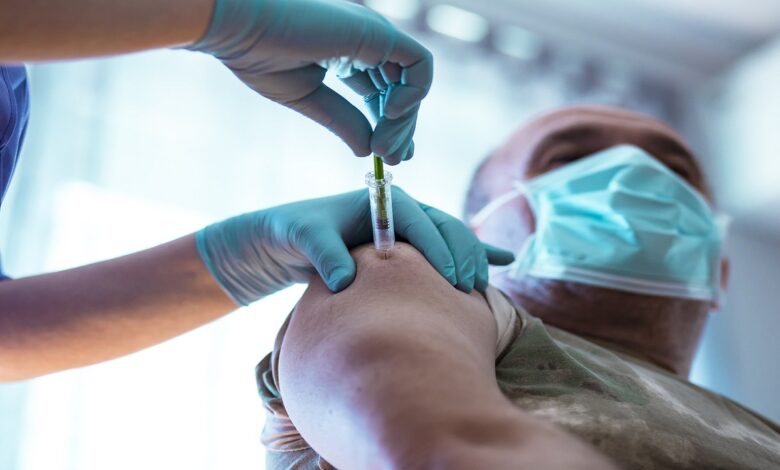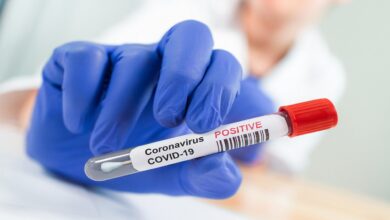mRNA COVID-19 vaccines effective in cirrhosis patients, study finds

[ad_1]
U.S. veterans experiencing cirrhosis, or damage to the liver, and who also received an mRNA COVID-19 vaccine saw high levels of protection against virus-related hospitalization and death, a study found.
The findings come as federal health authorities said the two groups of concern relating to potential use of booster shots include people 75 and older and those with a weakened immune system, or immunocompromised patients. The study authors at hand noted “patients with cirrhosis have immune dysregulation that is associated with vaccine hyporesponsiveness.” Ongoing research by the FDA and a CDC panel is working to determine if, when and for whom booster shots could be necessary. However, for now, the FDA and CDC said “Americans who have been fully vaccinated do not need a booster shot at this time,” citing highly effective vaccines.
AMERICANS ‘DO NOT NEED’ COVID-19 BOOSTER SHOT, FDA, CDC SAY
Researchers affiliated with the Bruce W Carter VA Medical Center in Miami published findings in JAMA Internal Medicine on Tuesday, drawing from a retrospective study of 20,037 U.S. veterans with cirrhosis who received at least one dose of vaccine at the Veterans Health Administration, compared with another 20,037 matched controls. Researchers used national data from the Veterans Outcomes and Costs Associated with Liver disease (VOCAL) cohort to conduct the study.
DRINKING COFFEE MAY REDUCE RISK OF GETTING LIVER CANCER
Results suggested vaccination with Pfizer or Moderna’s jab cut patients’ COVID-19 infections by 64.8% and afforded a 100% drop in COVID-19-related hospitalization or death after 28 days. However, those with even worsened functioning of the liver (or decompensated cirrhosis) saw less protection against COVID-19 infection compared to patients with compensated cirrhosis, or those in the asymptomatic stage at 50.3% vs 66.8%, respectively, though a second dose boosted protection against infection to 78.6%. The authors noted an otherwise “significant knowledge gap” relating to vaccine efficacy in cirrhosis patients, particularly those with a decompensated form of the disease.
Of note, vaccinated and unvaccinated patients faced similar numbers of infections within 28 days after the first dose, though benefits from vaccination were reported after 28 days.
Patients under study were about 69 years old on average, and over 97% of individuals in each study group were male, 60.6% were white, said to be reflective of a U.S. veteran population, and the study included a “considerable proportion” Black patients at 23.2%.
“This cohort study of US veterans found that mRNA vaccine administration was associated with a delayed but modest reduction in COVID-19 infection but an excellent reduction in COVID-19–related hospitalization or death in patients with cirrhosis,” authors wrote.
CLICK HERE FOR COMPLETE CORONAVIRUS COVERAGE
Study authors said that while cirrhosis patients induce a limited response to other vaccines, the mRNA COVID-19 shots resulted in a reduction in coronavirus infections.
[ad_2]
Source link




